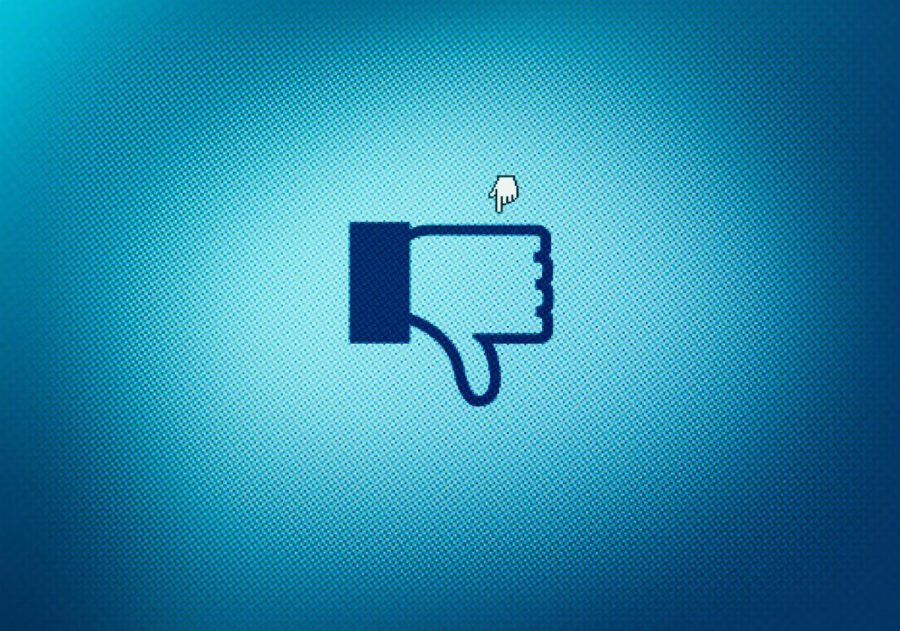Beware of the Algorithm
October 20, 2021
“The version of Facebook that exists today is tearing our societies apart and causing ethnic violence around the world”
Facebook is making headlines again. Frances Haugen, yet another Facebook whistleblower reignites the discussion on social media toxicity.
Although she is certainly not the tech giant’s first whistleblower, Haugen is already turning heads, especially among Congress where she continues to advocate for legislative action.
Haugen, a former Facebook data scientist and product manager, worked closely in the Department for Civic Integrity. Shortly after the 2020 presidential election, Facebook made the decision to dissolve the department, leaving many employees with the impression that moral regulation and content oversight had little hope of survival among the powerful network.
In efforts to publicize her concerns with the company, Haugen scanned thousands of internal research documents that would later prove the extent to which misinformation and polarization make up the platform’s content.
One document states, “we have evidence from a variety of sources that hate speech, divisive political speech and misinformation on Facebook and the family of apps, are affecting societies around the world.”
Haugen testified on Oct. 5, before the Senate Committee on Commerce, Science, and Transportation. In her opening statement, “I am here today because I believe Facebook’s products harm children, stoke division, and weaken our democracy.”
She came before Congress to gain action in the form of legislative oversight and regulation regarding the company’s misuse of algorithms. The simple fact is, “Facebook makes more money when you consume more content. People enjoy engaging with things that elicit an emotional reaction and the more anger that they get exposed to, the more they interact and the more they consume,” said Haugen.
As these tech giants continue to expand, this cycle of misinformation and hate becomes increasingly powerful. Dr. Lonny Brooks, a professor in the Department of Communication at California State University, East Bay said, “It is geared to just keep you engaged as an addictive drug.” He added, “we need to think about how we can view our technologies with more human-centered designs that don’t tweak our worst impulses…and algorithms that have alternative viewpoints from various cultures embedded…[that] favor a more humane society.”
Not only do the uncovered documents suggest these algorithms cripple our sense of democracy, but they warp our view of the world through a continued spread of misinformation. In 2018, a study conducted on 11 U.S universities, revealed that among college students, “Facebook (still) reigns for news among social media networks.”
It is through platforms riddled with fake news, biases, and propaganda, that students choose to grasp a “better” understanding of the world. The study revealed that over 71% of students received weekly news via Facebook, 51% from Instagram, and 55% from Snapchat.
As we’ve seen in recent years, misinformation can prove to be fatal. Using the Cambridge Analytica scandal as an example of the effects of misinformation, Dr. Brooks stated, “we know that Facebook has played a role in dismantling our democracy.”
Knowing the harm that algorithms can impose, how is it that social media giants remain unrestrained? Dr. Nolan Higdon, author of The Anatomy of Fake News: A Critical News Education and lecturer in History and Media Studies at CSUEB, discussed, “I think it’s long time that we face the fact that Facebook and big tech companies are advertising monopolies.”
The strides towards congressional action are what makes Haugen’s whistleblower case so unique. As a former employee of Facebook, she recognizes that its algorithms encroach on the United States’ beloved sense of democracy. Haugen is pleading for legislative action.
“When it comes to issues manipulating users, manipulating democratic outcomes, or manipulating markets— the whole point of democratic government is specifically designed to address those issues,” said Higdon. The reason behind the lack of congressional action: money.
“Big tech has done a really great job of buying off the political class,” added Higdon. It’s hard to govern social media giants, while our political leaders reap its benefits.
“All the Obama cabinets had a revolving door with big tech, Donald Trump spent 100 million dollars on Facebook… and was meeting with Zuckerburg so long story short— they’re highly invested with the political class so it’s really going to take people organizing and putting pressure on elected leaders to break up big tech and regulate them.”
The hope is that, in revisiting this conversation once again, we are not only one step closer to legislative action but we are one step closer to the restoration of democracy and unfiltered truth.







